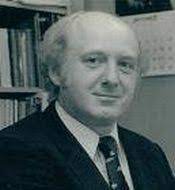Bainbridge, William Sims

Bio: (1940-) American sociologist. William Bainbridge studied at Yale and Boston Universities, received his doctorate from Harvard, and today works at George Mason University. At the beginning of his career, he mostly studied new religious movements, and for the purpose of his own research, he became a member of a cult. From 1979 to 1989, he worked intensively with sociologist Rodney Stark, with whom he developed Stark-Bainbridge's theory of religion. The two introduced the approach of rational choice into the sociology of religion. This approach relies on the theory of exchange and is part of their broader theoretical conception of society. In their opinion, almost all human interactions can be considered a form of exchange.
Religion serves to satisfy desires, that is, to provide rewards, and that can include both concrete things and abstract needs (the meaning of life, the salvation of the soul). The investment in the achievement of the award will be proportional to the size of the award. If people cannot easily achieve their goals, then they accept "compensators", hope, and the promise that they will achieve those goals in the future, and that is exactly what religion gives them. Religion is, above all, about supernatural things and beliefs. They believed that the process of secularization was twofold, while the importance of those religious organizations that exhibited greater secularism was declining, cults and sects were strengthening at the same time, and many sects were growing into denominations. They also developed a scheme to distinguish cults from sects. Bainbridge is also known for its sociological study of the social aspects of space exploration, information technology, video games, and science fiction.
Fields of research
Art Authority Christianity Sects and Cults Game Rationality Religion Secularization Technology AtheismTheoretical approaches
Rational Choice TheoryMain works
The Spaceflight Revolution (1976);
Satan's Power (1978);
The Future of Religion (1985);
A Theory of Religion (1987);
American Values and the Future of Technology (1991);
Sociology of Religious Movements (1997);
The Endtime Family: Children of God (2002);
Nanotechnology: Societal Implications–Individual Perspectives (2006);
God from the Machine: Artificial Intelligence Models of Religious Cognition (2006);
Goals in Space: The Secular Abyss (2007);
The Warcraft Civilization: Social Science in a Virtual World (2010);
An Information Technology Surrogate for Religion (2014);
The Meaning and Value of Spaceflight (2015);
Star Worlds: Freedom Versus Control in Online Gameworlds (2016);
Dynamic Secularization (2017);
Family History Digital Libraries (2018);
Computer Simulation of Space Societies (2018);
Virtual Local Manufacturing Communities: Online Simulations of Future Workshop Systems (2019);
Cultural Science: Applications of Artificial Social Intelligence (2020);
The Social Structure of Online Communities (2020).

